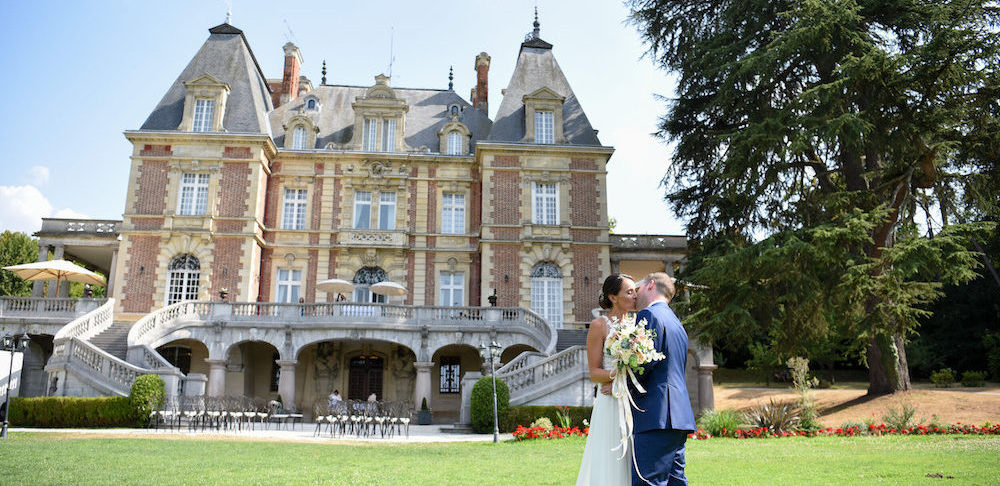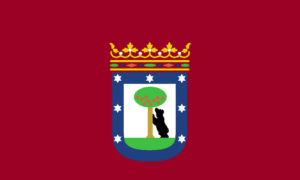(Editor’s note: This post about getting married in France originally appeared on The American in Paris website. It’s reposted here with permission.)
In March of last year, I officially became Madame. When I first came back to France to live, I never thought that just seven years later I would be a married woman. Being in an intercultural relationship meant that my now-husband and I had to have a lot of serious conversations early on in our relationship. About three years in, I was coming to the end of my student visa, which meant I had to either leave France or figure out another way to legally stay here.
After a lot of late-night talks, we decided to get married. It may not sound very romantic, but it was! If you want I can get super corny and say that it was love at first sight (it was) but I’ll refrain.
Like any administrative task in France, getting married involves a lot of paperwork, and slightly more if you’re not French like me. And, yes, getting married can be considered an administrative task here. If you find yourself in the same situation as I did – an American marrying a French person – then you may find this article helpful.
Documents you’ll need
The first step is to determine where you want to get married. Most people choose their local town hall (Mairie in French); however, it is possible to get married elsewhere – for example, my husband and I had our ceremony in the suburb where his parents live.
The town hall that you choose is important as in order to get married you’ll be required to show proof of address. While there is no hard and fast rule that states that you must be married where you live, you may raise suspicions of a “mariage blanc” (the French version of a “green card marriage”) if you choose an obscure town that neither you nor your future spouse has ties to.
In true French fashion, now you need to start gathering paperwork. But, before you do that, you’ll have to go to the town hall of your choice to make an appointment to drop off your file. Simply tell the person at the front desk that you want to get married there and that you’re ready to make an appointment to drop off your dossier, which is the French term for the pile of paperwork you’ll need to produce. They will give you a list of everything that you need. Be sure to include:
For the American:
- Passport
- Birth certificate — issued no more than three months before you drop off your paperwork. Remember to ask your town or city hall to include the apostille (here’s where I made a huge mistake – I forgot to ask for the apostille and it set me back at least a month!). You’ll also need to have your birth certificate and apostille officially translated into French.
- Proof of address
- Proof that you are not currently married — this document technically doesn’t exist in the United States, but you can find the equivalent on the US Embassy website here. I was not required to have my signature notarized, but you may be depending on the town hall. Follow the instructions on the page above if that is the case.
For the French person:
- French ID card or passport
- Birth certificate — issued no more than three months before you drop off your paperwork. This can be found in the town hall where your Frenchie was born.
- Proof of address
You’ll also need to bring information about your witnesses. I personally had one witness and my husband had two. On a piece of paper, simply write down their names, birth dates, where they were born, current address, and profession. You’ll also need a copy of their IDs.
The waiting game
When you go to the town hall to drop off your paperwork, the person working there will sit down with you and your future spouse to make sure that you have everything you need. If everything checks out, you’ll be able to pick your tentative wedding date then and there.
Once you’ve picked your date, you’ll have to wait at least a week for the town hall to double-check that you have all of the correct paperwork. I mentioned above that you’re allowed to choose a tentative wedding date as it can’t be confirmed until the mayor, or assistant mayor has gone over your file him or herself and signs off on it.
Don’t be afraid to call the town hall if you haven’t heard back from them within a week’s time. We hadn’t heard anything 10 days after we dropped our file off and so my husband called them to see what was going on. Again, in true French fashion, they had simply forgotten to call and tell us that we were all set. The longer you live in France, the more you’ll realize that a lot of administrative tasks involve patience and a little bit of pushiness.
On the day of the wedding
The big day. Congratulations, your relationship is about to be officially recognized by France! On the day of the ceremony, you won’t have to worry about bringing any paperwork as all of that is already taken care of. You just need to show up with your future spouse, witnesses, and friends and family.
The ceremony itself isn’t usually longer than 20 minutes. The assistant mayor (or mayor, if you’re lucky) will make a speech. Then, he or she will ask you and your future spouse if you consent to marry each other. After a few ouis, the newlyweds and the witnesses sign the marriage certificate. Then the fun can begin!
A note on the “wedding contract”
As you do your research on what you need to get married in France, you’ll likely come across the words contrat de mariage or a certificat de notaire. If you don’t plan on drawing up a prenuptial agreement (or, at least, the French equivalent), then don’t worry about any of that. You are not required to have a wedding contract, but if you’re interested in one, you’ll have to talk to a certified notary.
Read more from Mollie here. See Dispatches’ France archives here.
Molli Sébrier has lived in Paris since 2014 when she decided to leave her American life behind and pursue her dream of becoming a writer. Since living abroad, Molli has earned her master’s degree in English Studies with a concentration in literature and is now working towards making that becoming a writer thing happen.
If you’re interested in following your own dreams of moving to France, she also offers consulting.
You can follow her journey on Instagram @mollim, and if you like to read, Molli runs a female-focused book review website called The Mistress of Books. You can also follow her website on Instagram @themistressofbooks.















